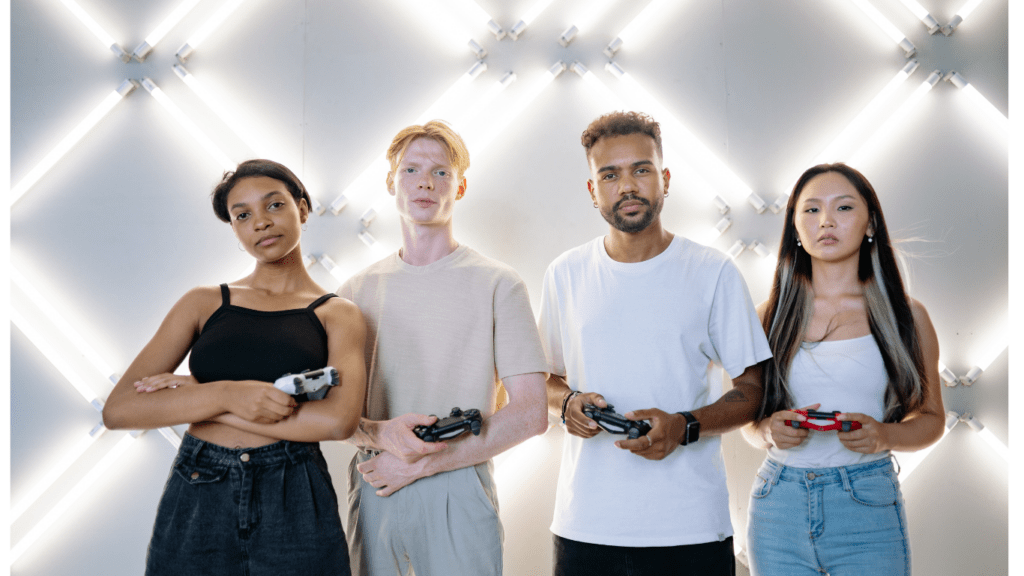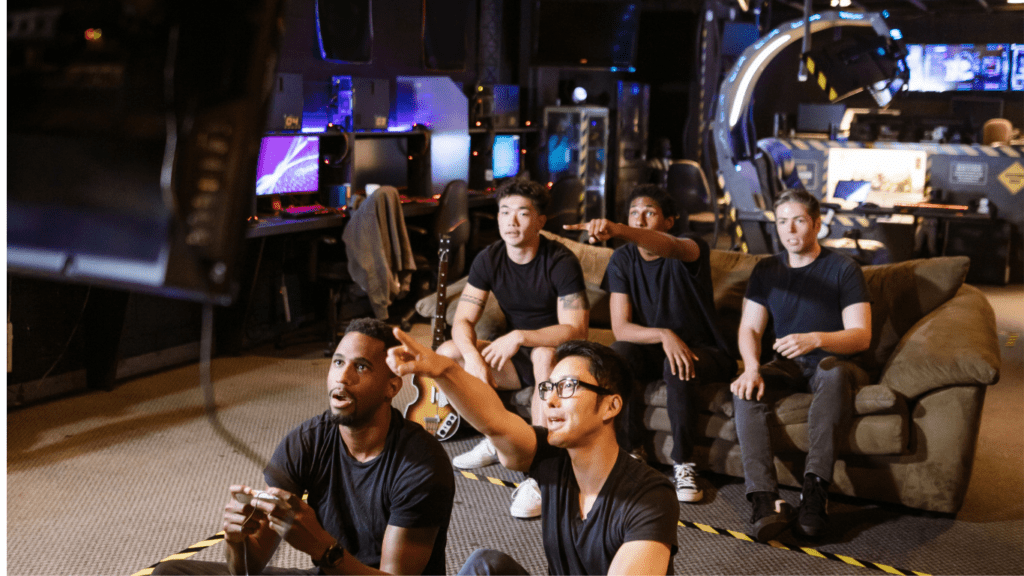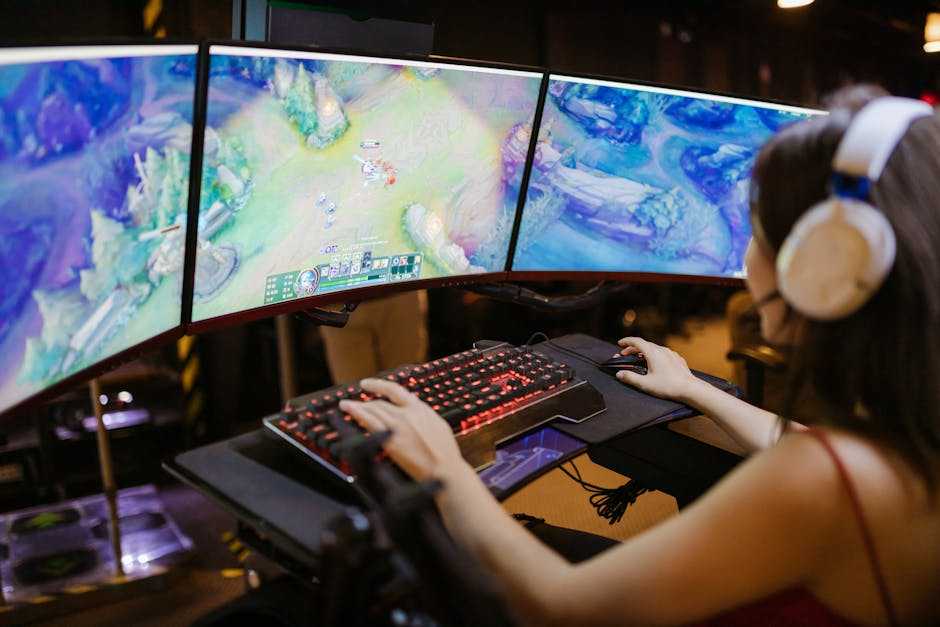Understanding Diversity in Esports
1. Current Representation Statistics
Current representation statistics in esports show a lack of diversity among players, coaches, and officials.
A survey by ESL in 2022 revealed that only 5% of professional esports players are women, despite women making up 41% of the general gaming population.
Additionally, players from Black and Latinx communities account for only 13% combined, compared to their entire gaming community proportion of 24% (source: Entertainment Software Association).
These numbers highlight a significant gap in both racial and gender representation at the professional level.
2. Challenges Faced by Underrepresented Groups
Underrepresented groups in esports face numerous challenges that limit their participation and success.
Women often encounter misogyny and harassment, both online and offline, which discourages many from pursuing esports careers (source: Pew Research Center).
Black and Latinx players frequently face racial prejudice and lack of access to resources such as high-quality gaming equipment and exposure to professional training programs.
Furthermore, these groups frequently lack representation in top-tier organizations, reducing their visibility and opportunities for advancement.
Addressing these challenges is vital for fostering a more inclusive esports environment.
The Role of Inclusion Initiatives in Esports
1. Notable Organizations and Their Efforts
Many organizations are driving change to foster diversity in esports.
I observed that entities like Women in Games, AnyKey, and the Black Collegiate Gaming Association (BCGA) take on these initiatives.
Women in Games aims to increase female participation across all esports sectors.
They offer mentorship programs and workshops to empower women within the industry.
AnyKey, co-founded by Intel and ESL, focuses on promoting diversity.
They developed the “Good Luck, Have Fun” (GLHF) pledge, encouraging respectful behavior among players.
BCGA supports Black students interested in gaming careers.
They provide scholarships, internships, and networking opportunities to bridge the gap in representation.
2. Impact of Inclusive Policies on the Community
Implementing inclusive policies positively affects the esports community.
I noticed a higher engagement level among underrepresented groups, like women, Black, and Latinx gamers, when policies promote equitable opportunities.
Diversity training for staff, inclusive recruitment practices, and zero-tolerance harassment policies create a safer environment.
For instance, implementing diversity quotas in teams has led to more balanced representation in professional tournaments.
These initiatives have increased viewership from diverse demographics, fostering a more vibrant and dynamic esports community.
Collaboration between organizations and the community further amplifies the success of these policies.
By supporting and promoting inclusion initiatives, I believe the esports industry can progress towards a more equitable and thriving future.
Future Goals for Enhanced Diversity in Esports

Developing Inclusive Recruiting Practices
Esports organizations aim to develop inclusive recruiting practices to enhance diversity.
By reaching out to underrepresented groups, such as women, Black, and Latinx individuals, esports teams can build a more diverse talent pool.
Partnerships with universities and community organizations help identify and nurture diverse talent at grassroots levels.
Implementing unbiased hiring processes ensures equal opportunities for all applicants, promoting fair evaluation based on skills, not demographics.
The use of diversity-focused job boards and social media platforms also attracts a broader range of candidates.
Tracking recruitment metrics based on diversity helps showcase progress and areas needing improvement.
Regular diversity training for recruiters ensures fair assessments. Establishing mentorship programs within organizations further aids the integration and development of diverse talent.
Importance of Ongoing Support and Advocacy
Ongoing support and advocacy remain crucial to maintaining diversity in esports.
Providing continuous resources like training, workshops, and mental health support helps retain diverse talent.
Partner organizations, such as Women in Games and the Black Collegiate Gaming Association (BCGA), can offer additional support and advocacy.
Creating safe, inclusive environments in both online and offline spaces encourages participation from diverse groups.
Establishing robust policies addressing harassment and discrimination ensures ongoing safety.
Advocacy also means speaking out against issues impacting underrepresented groups, using influential voices to drive change.
Regular feedback from diverse communities helps fine-tune support strategies, creating a more inclusive and supportive esports ecosystem.
Best Practices from Other Industries
Lessons Learned and Adaptable Strategies
Examining other industries reveals several best practices that can be adapted to enhance diversity and inclusion in esports.
Tech Industry:
- Employee Resource Groups (ERGs): Tech companies like Google and Microsoft use ERGs to support underrepresented employees. These groups provide community support, mentorship, and opportunities for professional development. In esports, similar groups could offer vital networks for women and minority gamers.
- Bias Training: Companies like Facebook and Apple implement unconscious bias training for employees. This training helps employees recognize and mitigate biases in their daily interactions. Esports organizations can adopt this practice to ensure fair treatment in team selections, promotions, and interactions.
- Inclusive Hiring Practices: Many tech firms focus on diversifying their talent pool by promoting inclusive hiring practices. They partner with minority-serving institutions and organizations. Esports organizations can replicate this strategy by collaborating with historically Black colleges and universities (HBCUs) and women’s gaming organizations.
- Diversity Metrics: Corporations such as IBM and SAP use metrics to track diversity and inclusion progress. They set measurable goals and regularly report on them. Esports companies can implement similar metrics to ensure they are progressing towards their diversity objectives.
- Mentorship Programs: Enterprises like General Electric (GE) and Procter & Gamble (P&G) have mentorship programs to foster career growth among underrepresented groups. Esports organizations can introduce mentorship initiatives connecting novice gamers with established professionals.
- Leadership Commitment: CEOs from companies like PepsiCo and Intel publicly commit to diversity. Their leadership teams lead by example. Esports leaders need to make public commitments to diversity, demonstrating their dedication to fostering an inclusive environment.
By adopting these adaptable strategies from the tech industry and corporate sector, esports can create a more inclusive ecosystem, providing equal opportunities for everyone.


 Charlie Bracegirdle seamlessly combines his passion for gaming with his role at Infinity Game Saga, where he is both a dedicated gamer and a prominent content creator. As an integral member of the team, Charlie brings a wealth of experience and a deep understanding of the gaming industry to his work. His articles and content cover a broad spectrum of gaming topics, from detailed reviews and insightful industry analyses to the latest trends and upcoming releases.
Charlie’s unique perspective, shaped by his own extensive gaming experiences, allows him to engage with readers in a meaningful way. His writing not only informs but also entertains, providing a blend of professional insight and personal enthusiasm. Whether he's exploring new game mechanics, dissecting game strategies, or sharing his thoughts on the future of gaming, Charlie's contributions make a significant impact on the Infinity Game Saga community. Through his work, he bridges the gap between gamers and the evolving landscape of the gaming world, enhancing the experience for all who follow his updates and analyses.
Charlie Bracegirdle seamlessly combines his passion for gaming with his role at Infinity Game Saga, where he is both a dedicated gamer and a prominent content creator. As an integral member of the team, Charlie brings a wealth of experience and a deep understanding of the gaming industry to his work. His articles and content cover a broad spectrum of gaming topics, from detailed reviews and insightful industry analyses to the latest trends and upcoming releases.
Charlie’s unique perspective, shaped by his own extensive gaming experiences, allows him to engage with readers in a meaningful way. His writing not only informs but also entertains, providing a blend of professional insight and personal enthusiasm. Whether he's exploring new game mechanics, dissecting game strategies, or sharing his thoughts on the future of gaming, Charlie's contributions make a significant impact on the Infinity Game Saga community. Through his work, he bridges the gap between gamers and the evolving landscape of the gaming world, enhancing the experience for all who follow his updates and analyses.
